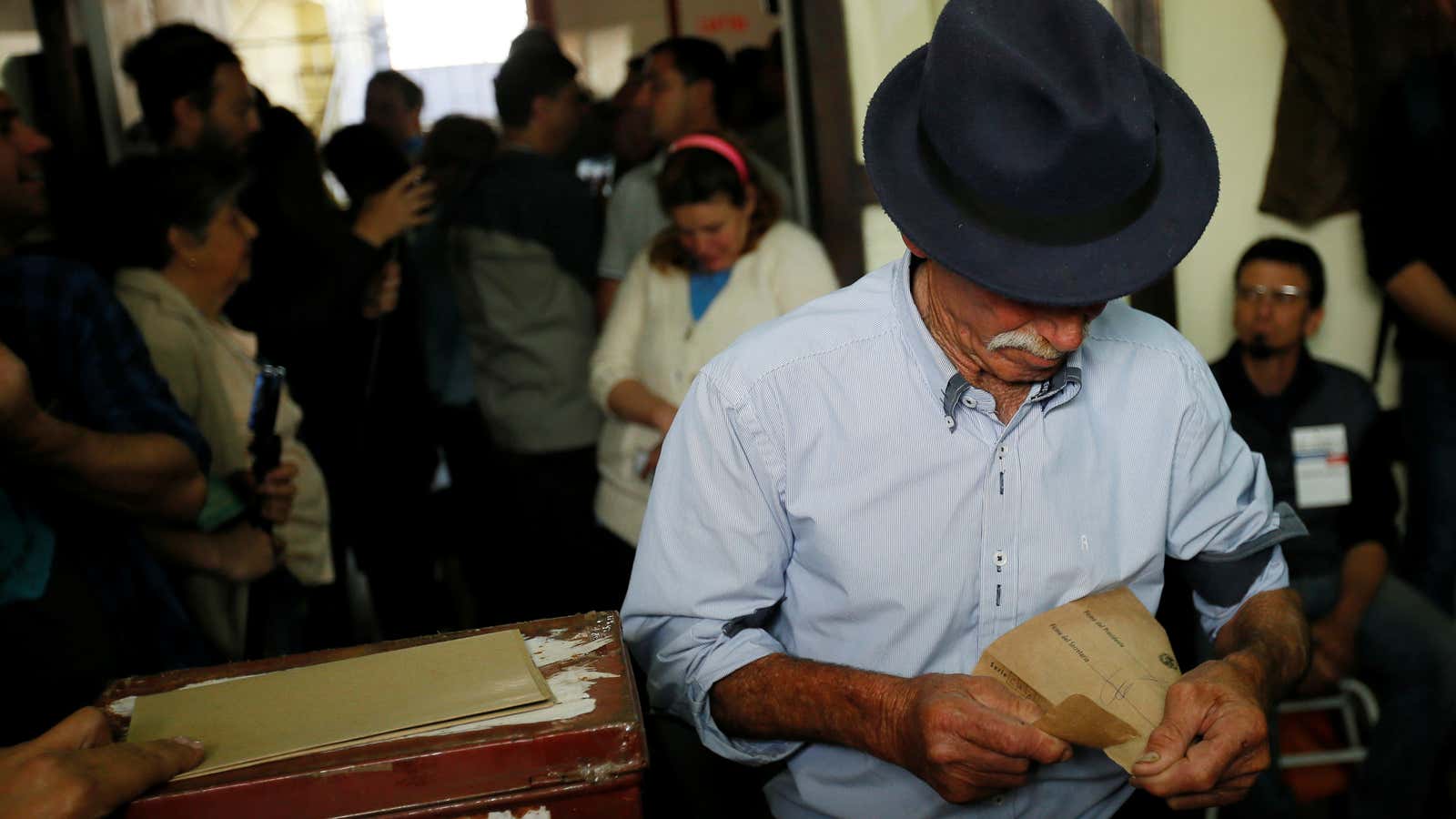The most democratic country in the Americas is not Canada or the US, but Uruguay.
The small South American nation scored especially high on this year’s Democracy Index, the Economist Intelligence Unit’s annual ranking of national electoral systems. Canada ranked close behind Uruguay, while the US isn’t even considered a “full democracy,” according to the index.
“Uruguay has the lowest level of poverty in Latin America, it doesn’t have any extreme poverty, and its level of inequality measured by the Gini index is also the lowest in the region,” said Nicolas Saldías, a Latin American analyst at the Economist Intelligence Unit. “This allows it to avoid the political polarization you see in many other parts of Latin America. Look at Brazil or Peru right now, that is unthinkable in Uruguay.”
Norway took first place for the 12th consecutive year in the ranking. The Scandinavian region scored particularly high in the index, making up five of the top six countries.
The index designates each nation as either a full democracy, flawed democracy, hybrid state, or authoritarian state, based on five different categories measuring the health of various political institutions. Only 24 countries are considered true democracies, the majority of which are clustered in western and northern Europe.
The US holds the 30th spot in the index, ranking below Estonia and just above Botswana. The US has declined considerably in the last decade and has been considered a flawed democracy since 2016.
The world’s average democracy score improved slightly from the last year’s ranking, as the easing of covid restrictions increased the score in many countries. However, more than a third of the world’s population still lives in countries considered authoritarian, while only 8% live in a full democracy.
What are the most democratic countries in the world?
Person of interest: Uruguay’s philosopher president
Uruguay undertook a major social transformation a decade ago, thanks in large part to its former president Jose Mujica, an ex-revolutionary and ambitious reformer. Often dubbed the world’s humblest president, Mujica was president from 2010 to 2015 and oversaw a period of liberalization and social reforms.
A one-time guerilla fighter with a left-wing insurgency group, Mujica was imprisoned for 14 years during Uruguay’s military dictatorship in the 1980s and 90s. After constitutional democracy was restored in 1985, Mujica was elected to Uruguay’s parliament.
As president, Mujica oversaw a strong economy, legalized abortion and same-sex marriage, and even nationalized the sale of marijuana in an attempt to wrest power from drug cartels.
Mujica also preached a return to simplicity, addressing the United Nations General Assembly in 2013 to promote the values of love and solidarity over consumerism and the creation of wealth. While president, Mujica donated 90% of his salary to charity, commuted to work on a 60-year-old bicycle, and chose to live at his family’s chrysanthemum farm instead of the presidential palace.
In the years since Mujica left office, Uruguay has scored among the highest in the region on metrics for democracy, development, and overall happiness. Additionally, Mercer Research found that Montevideo, Uruguay’s capital, had the highest quality of life of any city in Latin America.
Related stories:
🌎 Brazil and Argentina are laying the groundwork for a Latin American currency to rival the US dollar
💰 A 5% tax on the world’s multimillionaires could lift 2 billion people out of poverty
🇵🇪 Why Peru’s disgraced ex-president remains popular with indigenous miners
